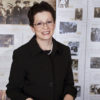Women Anthropologists in History

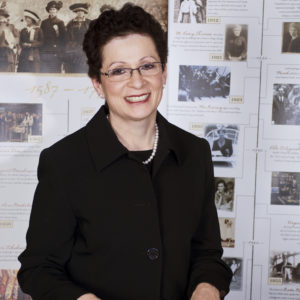
Jill S. Tietjen, PE, is an author, national speaker, and…
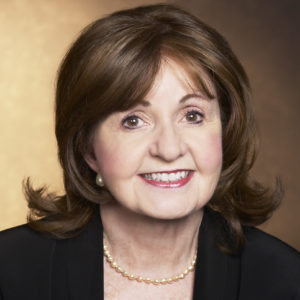
Charlotte S. Waisman, Ph.D. is a national champion and advocate…
Anthropologists study human relationships, the norms and values of societies, languages, human economic behavior, the biological development of humans, and the impacts of disease on humans and society over time. Just as in most fields of endeavor, women have made significant contributions to the field of anthropology as well. Let’s discover some groundbreaking female anthropologists.
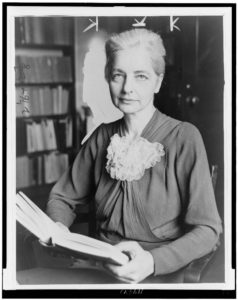
Ruth Fulton Benedict was America’s first woman anthropologist and for many years, the country’s leading specialist in the field. She helped to popularize anthropology for wider audiences. Moreover, Benedict’s work helped people to understand that women had views that expanded the world of science. In a field dominated by men until the early 20th century, Benedict left an indelible impact on her successors. She left behind a body of work that is still widely read and studied by anthropologists as well as the general public.
Benedict’s seminal work, Patterns of Culture, was published in 1934. It reflected her findings that each culture fosters one dominant type of personality. She identified these differences in Native American cultures and noted that societies sometimes revere persons who are considered outcasts in other cultures. Controversial in the anthropological community and in society as a whole, the book was translated into 14 languages; it was still used as the standard introduction to anthropology 25 years after it was published. In addition, her research led her to combat racism in the 1940s. Her book, Race: Science and Politics (1940) and her 1943 pamphlet “The Races of Mankind” both spoke out heavily against racism. Importantly, Benedict served as a mentor to the renowned anthropologist Margaret Mead. Benedict has been inducted into the National Women’s Hall of Fame.
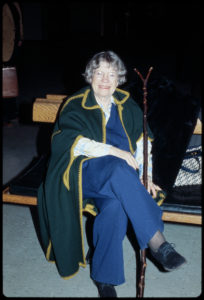
Cultural anthropologist Margaret Mead’s seminal 1928 work, Coming of Age in Samoa, made her famous at age 27. Her famous quotation, “Never doubt that a small group of thoughtful, committed citizens can change the world. Indeed, it is the only thing that ever has,” serves as the opener for the Introduction to our book Her Story: A Timeline of the Women Who Changed America. She began her field work on tribal indigenous societies in the South Pacific in 1923. Her research focused on child rearing, personality and culture.
Elected a Fellow of the American Academy of Arts and Sciences, Mead was affiliated for many years with the American Museum of Natural History and founded the department of anthropology at Fordham University’s Lincoln Center. Credited with having co-founded the field of visual anthropology, Mead was inducted into the National Women’s Hall of Fame and is featured on a U.S. postage stamp.
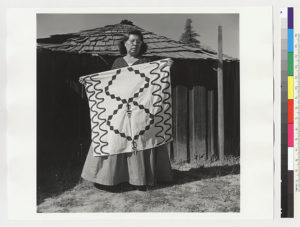
Essie Parrish guided her people, the Kashaya Pomo, a California Native American tribe, from 1941-1979. At the age of six, Parrish was acknowledged as a “dreamer” or “visionary” of her people. She had the ability to both prophesize and interpret dreams. Parris was committed to developing a record of the Pomo people. In 1956, she began collaborating with a social scientist at the University of California, Berkeley to develop a written language – including an alphabet – and a dictionary of the Kashaya Pomo.
Parrish also worked with social scientists to make more than twenty anthropological films documenting Pomo culture and ceremonies including a film on acorn processing which she narrated, Chish Kahle – The Beautiful Tree., It won the best documentary award at the 1969 Cannes Film Festival. She was dedicated to educating tribal youth on their language, culture, customs, and laws. A very skilled basket weaver, Parrish’s baskets are at the Smithsonian Institution and the Phoebe A. Hearst Museum of Anthropology at Berkeley, California.
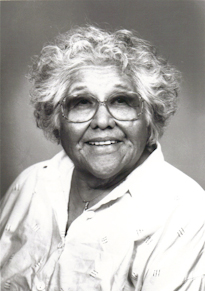
One of the last fluent speakers of her tribe’s language, Katherine Siva Saubel of the Cahuilla tribe in California, worked to preserve her people’s language and customs. She memorized sacred songs traditionally performed by the men. She also learned about native plants from her mother, a traditional healer, and she recorded the information in a journal. She worked with prominent linguists and anthropologists, co-produced a Cahuilla dictionary and a grammar book, authored a book on plant usage, and wrote her memoir.
The dominant interpreter of her tribe’s culture and history, Saubel also served as tribal chair on the Los Coyotes Reservation in San Diego County. She served as President of the Malki Museum from 1965 until her death. This museum, which she co-founded, has as its mission promoting scholarship and cultural awareness and preserving the culture of Southern California Indian cultures. Named “Elder of the Year” by the California State Indian Museum, Saubel received an honorary doctorate from La Sierra University in California. In 1994, she was the first recipient of the Smithsonian Institution National Museum of the American Indian’s Art and Culture Award. Saubel was inducted into the National Women’s Hall of Fame.
Dancer, choreographer and anthropologist
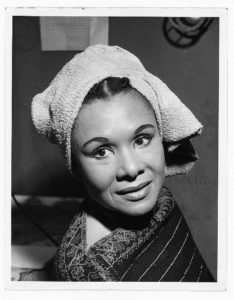
earned her bachelors, masters and Ph.D. degrees in anthropology at the University of Chicago. One of the first African American women to attend this institution, Dunham intended to become a teacher. Dance was her calling though and shortly after her graduation, she formed the Negro Dance Group. She studied dance in the Caribbean, and she wrote articles about her trips that she sold to magazines. In the 1930s she was one of the founders of the anthropological dance movement; she used folk and ethnic composition in her choreography. Dunham started a new academic discipline in Caribbean and Brazilian dance anthropology. She also created the Dunham Technique which changed the world of dance. The “Matriarch of Black Dance” developed pedagogy for teaching dance around the world.
After appearing in a number of films, Dunham choreographed Aida for the Metropolitan Opera, becoming the first African American to choreograph for the Met. Dunham wrote books, recorded songs, and worked actively for racial equality, especially awareness of the issues of poverty and racism. Her many honors include the Presidential Medal of Arts, the Kennedy Center Honors, and an honorary degree in fine arts from Harvard University.
These anthropologists, as well as many other women, almost all of whom we have not heard about nor learned about in school, are profiled in our book, Her Story: A Timeline of the Women Who Changed America. Help us by continuing to tell the stories of the women who came before us, on whose shoulders we all stand. Tell young women especially so they understand that they can dream BIG, and then make their dreams a reality.
Author: Jill Tietjen
Jill S. Tietjen, PE, is an author, national speaker, and an electrical engineer. After 40 years in the electric utility industry, her professional focus is now on women’s advocacy, worldwide. She blogs for The Huffington Post, speaks nationally on the accomplishments of women, nominates women for awards, and continues to write books (8 published to date), following in the footsteps of her bestselling and award-winning book, Her Story: A Timeline of the Women Who Changed America (written with Charlotte Waisman). She is a frequent keynote speaker as her positive energy and her ability to relate to the audience result in inspired and energized listeners. The recipient of many awards, her induction into the Colorado Women’s Hall of Fame in 2010 remains one of her most treasured.

Jill S. Tietjen, PE, is an author, national speaker, and an electrical engineer. After 40 years in the electric utility industry, her professional focus is now on women’s advocacy, worldwide. She blogs for The Huffington Post, speaks nationally on the accomplishments of women, nominates women for awards, and continues to write books (8 published to date), following in the footsteps of her bestselling and award-winning book, Her Story: A Timeline of the Women Who Changed America (written with Charlotte Waisman). She is a frequent keynote speaker as her positive energy and her ability to relate to the audience result in inspired and energized listeners. The recipient of many awards, her induction into the Colorado Women’s Hall of Fame in 2010 remains one of her most treasured.

Charlotte S. Waisman, Ph.D. is a national champion and advocate for women as a professor and keynote speaker. A corporate leader, executive coach, and facilitator, she conducts leadership workshops nationally.

